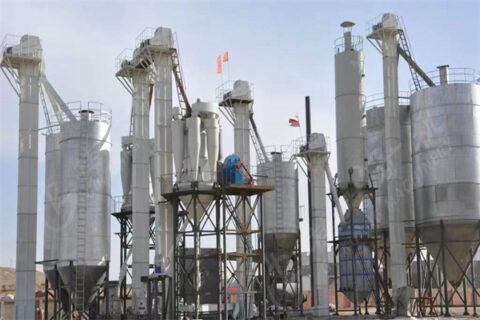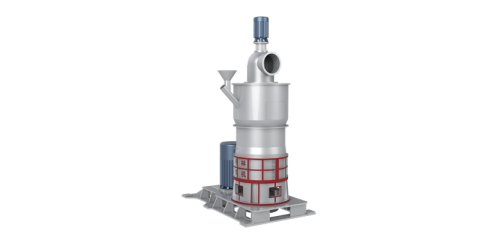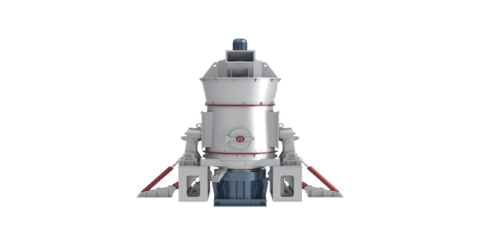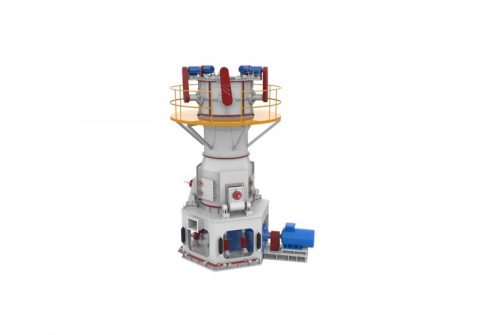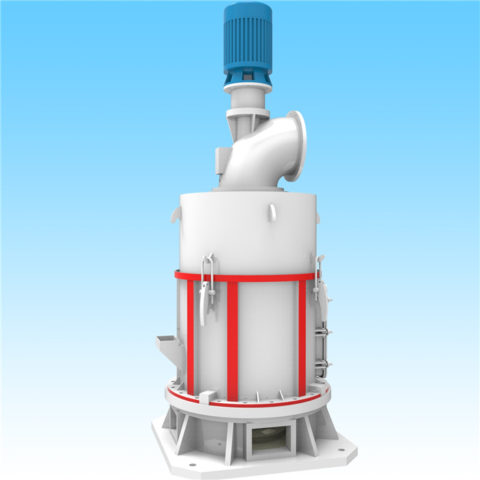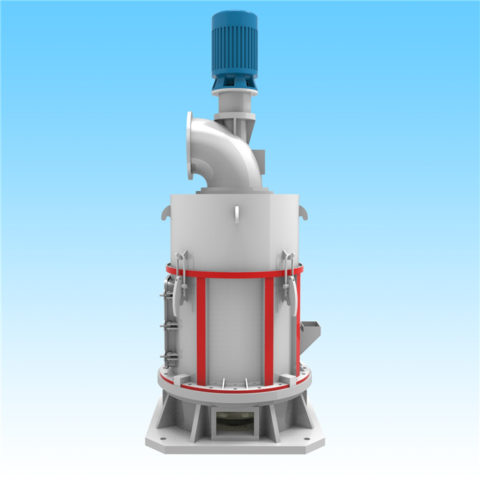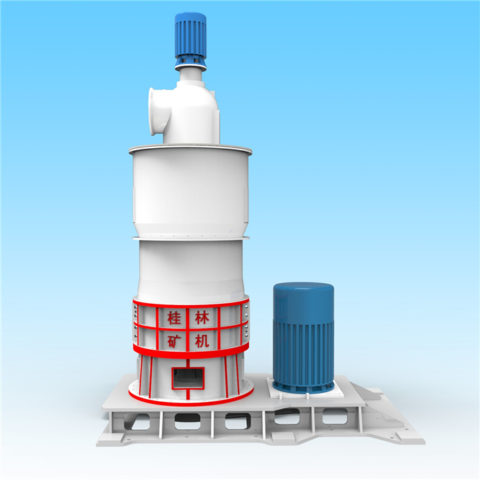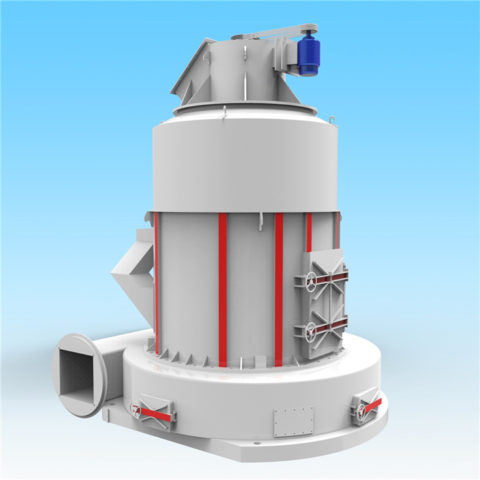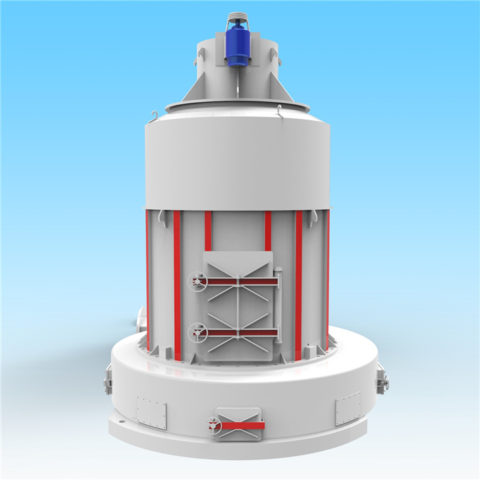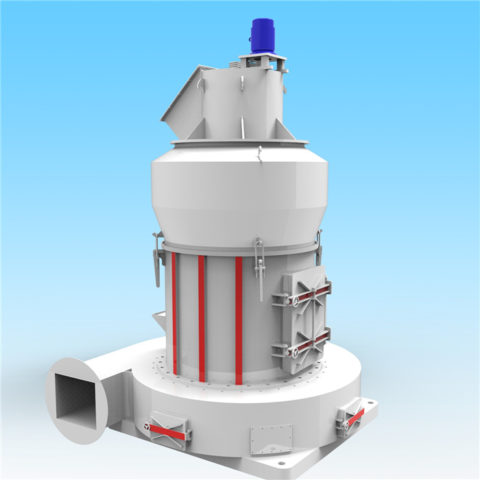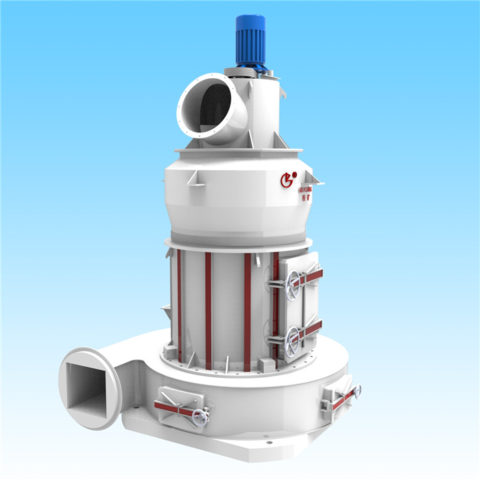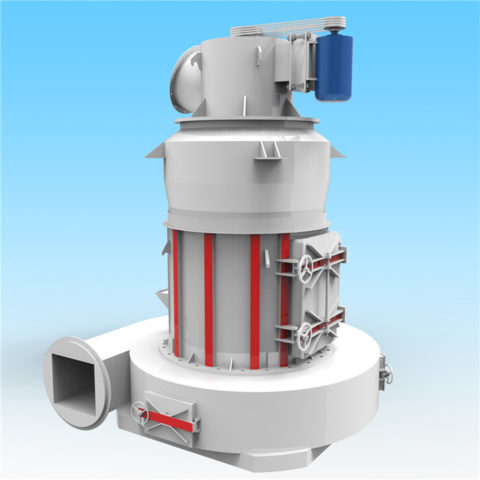The natural calcium carbonate abrasive used in toothpaste usually has 325 meshes (D97 is about 45 μ m) And 400 meshes (D97 approx. 38 μ m) In recent years, with the development of toothpaste technology and the progress of crushing technology, it has become a trend to use natural calcium carbonate abrasive with finer particle size. Research shows that the particle size of calcium carbonate abrasive has an important impact on the pH value, total soluble fluoride retention rate, viscosity and friction value of fluoride toothpaste. Guikuang, as the manufacturer of calcium carbonate grinding mill, will introduce the influence of the production process of calcium carbonate for toothpaste on the toothpaste friction agent calcium carbonate.
1、 The influence of particle size of calcium carbonate, a toothpaste friction agent, on the pH value of toothpaste: The pH value of fluoride toothpaste basically increased with the decrease of particle size of natural calcium carbonate abrasive D97, while the pH value of the same toothpaste tended to decrease with the extension of aging time, and the pH fluctuation range was greater at 50 ℃ than at 40 ℃; This is related to the two main reactions in the aging process of toothpaste. The decrease of abrasive particle size (the increase of specific surface area) accelerated the dissolution of calcium carbonate, which led to the increase of toothpaste pH, while SMFP gradually hydrolyzed hydrofluoric acid, which then reacted with calcium ions and phosphate radicals to produce insoluble fluorapatite, while releasing hydrogen ions, which led to the gradual decrease of toothpaste pH, Both reactions accelerated with the increase of aging temperature, resulting in a larger range of pH fluctuation of toothpaste.
2、 Effect of particle size of calcium carbonate, a toothpaste friction agent, on the retention rate of TSF in toothpaste: In general, the retention rate of TSF in fluoride toothpaste decreased with the decrease of particle size of natural calcium carbonate abrasive D97, while the retention rate of TSF in the same toothpaste decreased with the increase of aging temperature or the extension of aging time; This is caused by the decrease of abrasive particle size (increase of specific surface area) and the increase of aging temperature, which leads to the increase of calcium ions or hydrofluoric acid in the liquid phase and then accelerates the reaction of forming insoluble fluorapatite. The longer the aging time is, the hydrolysis and precipitation of SMFP will continue.
3、 Effect of particle size of calcium carbonate, a toothpaste friction agent, on the viscosity of toothpaste: The viscosity of fluoride toothpaste basically increases with the decrease of particle size of natural calcium carbonate abrasive D97, while the viscosity of the same toothpaste increases with the increase of aging temperature or the extension of aging time. The reasons can be attributed to two points: (1) The decrease of abrasive particle size and the increase of aging temperature increase the calcium ions in the liquid phase, which leads to the intensification of the cross-linking effect of calcium ions on CMC, while the extension of aging time leads to the continuous increase of the cross-linking effect, which leads to the increase of paste viscosity; (2) The decrease of abrasive particle size also increased the solid-liquid interface in the toothpaste, the paste flow resistance, and contributed to the increase of paste viscosity.
4、 The influence of particle size of calcium carbonate, a toothpaste friction agent, on the friction value of toothpaste: the friction value Ra of fluoride toothpaste aged at room temperature for 12 weeks generally increased with the decrease of particle size of natural calcium carbonate abrasive D97; The decrease of the particle size of this system leads to the increase of abrasive particles in the toothpaste, and more natural calcium carbonate abrasive particles are rubbing in the same groove during brushing. The superposition of their effects makes the groove easy to deepen, which leads to the increase of the friction value of the toothpaste. In addition, the coefficient of particle size distribution width narrows with the decrease of particle size, which also strengthens the superposition effect of the abrasion of natural calcium carbonate abrasive particles. That is, more natural calcium carbonate abrasive particles of similar size are in the same groove for abrasion, which should also play a role in increasing the friction value of toothpaste. This may be the reason why the friction value of the toothpaste with a particle size of 25.4 microns of D97 is higher.
The production process of calcium carbonate for toothpaste determines the particle size distribution of calcium carbonate, a toothpaste friction agent. As the manufacturer of calcium carbonate grinding mill, our calcium carbonate ultrafine ring roller mill, calcium carbonate Raymond mill, and calcium carbonate superfine vertical roller mill are all equipment for the production of toothpaste friction agent calcium carbonate. Among them, the calcium carbonate superfine vertical roller mill is more suitable for the production process of calcium carbonate for toothpaste.
The production process of producing calcium carbonate for toothpaste by calcium carbonate superfine vertical mill is as follows: the motor drives the reducer to drive the grinding plate to rotate, the materials are sent to the center of the rotating grinding plate by the air lock feeding equipment, and under the action of centrifugal force, the materials enter the grinding roller table. The grinding roller rotates and rolls continuously, so the materials are crushed due to extrusion, grinding and shearing. At the same time, hot air is sprayed from the air ring around the grinding plate at a high speed and uniformly upward. The materials after grinding are blown up and dried, and then enter the classifier with the wind. Qualified fine powder passes through smoothly, and is collected by the dust collection equipment as a product. The unqualified coarse powder falls back to the grinding plate under the action of the classifier blade, and is grinded together with the newly fed materials. In this way, the whole process of grinding operation is completed. The roller sleeve and lining plate grinding curve specially designed for ultra-fine grinding of ultra-fine powder by calcium carbonate superfine vertical roller mill is more easy to form material layer, with high grinding efficiency, high one-time grinding yield and sorting fineness ranging from 3um to 45um. It can realize the production of products of different specifications with one calcium carbonate vertical roller mill, and also can rapidly and stably produce products of the same fineness. The finished product can better meet the particle size requirements of the toothpaste friction agent calcium carbonate.

